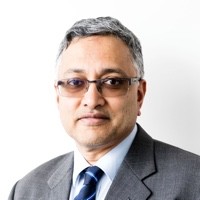Reflux Surgery
Gastroesophageal reflux disease (GERD) is a digestive disorder that is caused by gastric acid flowing from the stomach into the esophagus.
Gastroesophageal reflux is the return of acidic stomach juices, or food and fluids, back up into the esophagus. After food passes through the esophagus into the stomach, a muscular valve called the lower esophageal sphincter (LES) closes, preventing the movement of food or acid upward. Gastroesophageal reflux occurs when the LES relaxes inappropriately, allowing acid from the stomach to flow backward into the esophagus.
Heartburn, also called acid indigestion, is the most common symptom of GERD. If left untreated, gastroesophageal reflux can cause esophageal ulcers, esophageal bleeding, and narrowing of the esophagus (peptic stricture).
What contributes to GERD?
Some people are born with a naturally weak sphincter (LES). For others, however, fatty and spicy foods, certain types of medication, tight clothing, smoking, drinking alcohol, vigorous exercise or changes in body position (bending over or lying down) may cause the LES to relax, causing reflux. A hiatal hernia (a common term for GERD) may be present in many patients who suffer from GERD, but may not cause symptoms of heartburn.
How is GERD treated?
GERD is generally treated in three progressive steps:
1. Lifestyle changes
In many cases, changing diet and taking over-the-counter antacids can reduce how often and how harsh your symptoms are. Losing weight, reducing or eliminating smoking and alcohol consumption, and altering eating and sleeping patterns can also help.
2. Drug therapy
If symptoms persist after these life style changes, drug therapy may be required. Antacids neutralize stomach acids and over-the-counter medications reduce the amount of stomach acid produced. Both may be effective in relieving symptoms. Prescription drugs may be more effective in healing irritation of the esophagus and relieving symptoms. This therapy needs to be discussed with your surgeon.
3. Surgery
Patients who do not respond well to lifestyle changes or medications or those who continually require medications to control their symptoms, will have to live with their condition or may undergo a surgical procedure. Surgery is very effective in treating GERD.
There are procedures being tried, known as Intraluminal Endoscopic Procedures, which are alternatives to laparoscopic and open surgery. You will need to discuss with your surgeon and physician whether you are a candidate for any of these procedures.
Surgical services Dr Krishna performs
